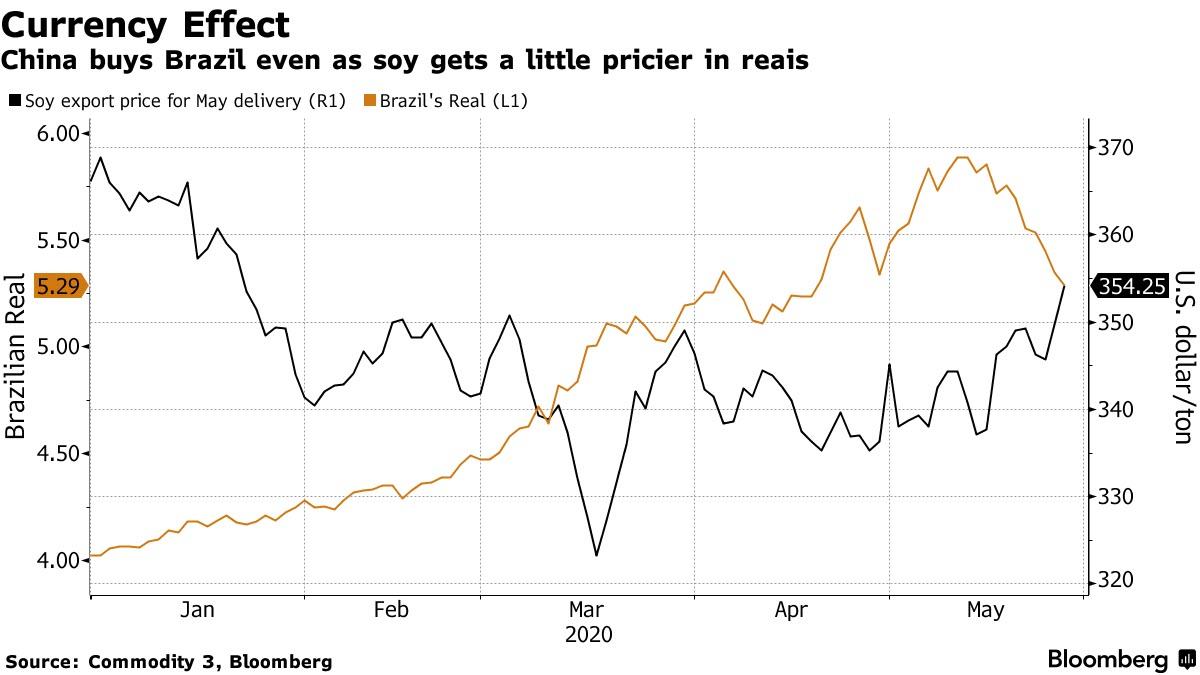China Secures Brazilian Soy As Trade War Restart Appears Imminent
Tyler Durden
Thu, 05/28/2020 – 12:15
With a new round of trade war increasingly likely between the US and China, Beijing has been buying Brazilian soybeans in a sign the Asian nation may be looking to secure an alternative source of supplies. According to Bloomberg, the world’s top soybean importer purchased more than 10 cargoes in Brazil this week, despite higher prices. In a further sign that China appears to be distancing from the US, Bloomberg adds that while China bid for American soy on Tuesday, state-run buyers were absent from the market Wednesday, the people said.
“Even with Brazilian soybeans being more expensive this autumn, China is securing this origin via what they see as the political risk in U.S. soybean/grain sales,” Chicago-based consultants AgResource said.
Most of the soybeans Brazil sold to China were for August and September, with some deals stretching into October. This is a disappointment for US farmer, because AgResource said it “had expected that the U.S. would be able to garner Chinese demand from late August into early 2021.”
“The U.S. will still dominate China’s purchases in this time slot, but totals will be cut from prior expectations,” the consultants said.
As a reminder, as part of the Phase 1 “trade deal”, China pledged to buy $36.5 billion in US agricultural goods this year, an increase of $12.5 billion over 2017 levels, before the start of the trade war. However due to the disruptions from the pandemic, not to mention the fact that China never intended to follow through with the trade deal, purchases have been running well behind; meanwhile the record plunge in Brazil’s currency has made its products more attractive.
An escalation in tensions between Beijing and Washington could jeopardize outstanding U.S. soy cargoes to China. About 1.8 million tons of soybeans sales to China for the current marketing year and 1 million tons for the next year are yet to be shipped, according to the U.S. Department of Agriculture.
via ZeroHedge News https://ift.tt/3dcpSmK Tyler Durden
